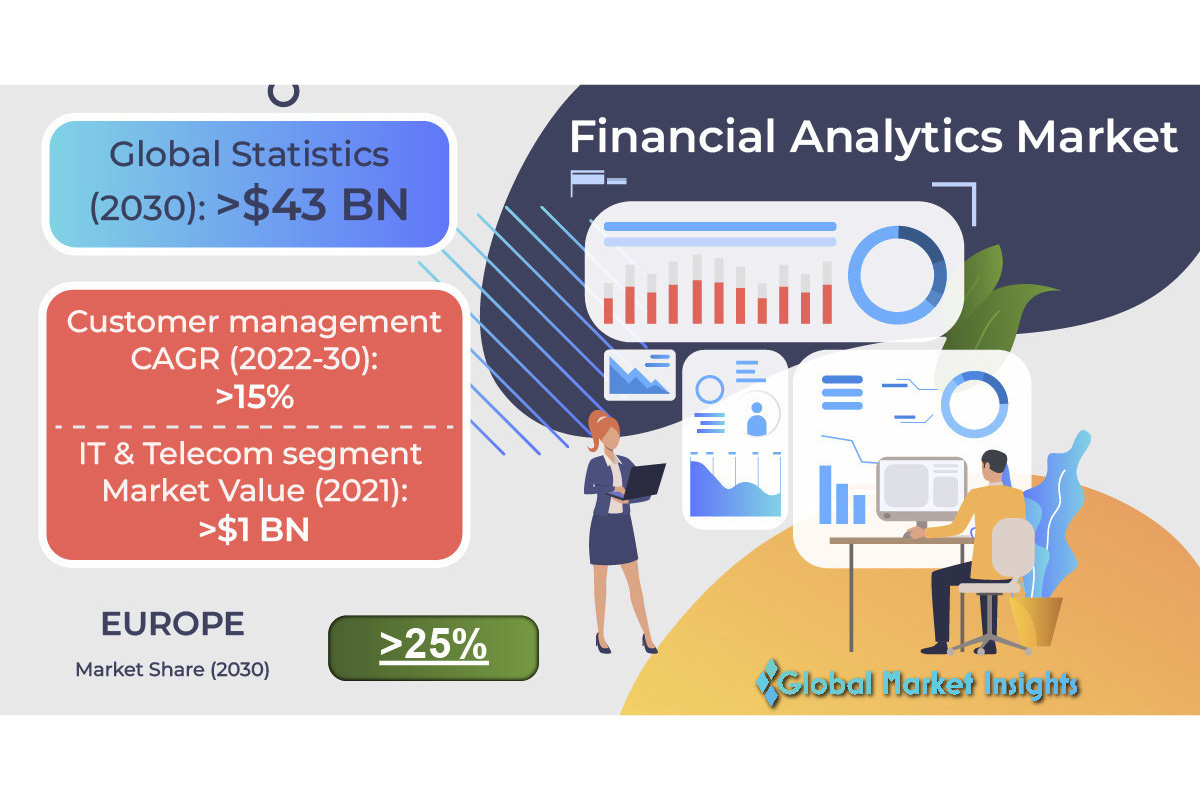Latest News
Digital Lending Market worth $20.5 billion by 2026 – Report by MarketsandMarkets™

According to a new market research report “Digital Lending Market by Offering (Solutions (Digital Lending Platforms and Point Solutions) and Services), Deployment Mode (Cloud and On-premises), End User (Banks, Credit Unions, and NBFCs), and Region – Global Forecast to 2026”, published by MarketsandMarkets, the global Digital Lending Market size to grow from USD 10.7 billion in 2021 to USD 20.5 billion by 2026, at a Compound Annual Growth Rate (CAGR) of 13.8% during the forecast period. Surge in digital lending during the pandemic and rising need of credit by MSMEs is driving the Digital Lending market.
Browse in-depth TOC on “Digital Lending Market”
252 – Tables
48 – Figures
229 – Pages
Download PDF Brochure: https://www.marketsandmarkets.com/pdfdownloadNew.asp?id=70396306
The emergence of alternative lending is expected to provide multiple fold growth opportunities in the digital lending. Alternative lending, also known as marketplace lending, peer-to-peer lending and P2P lending, takes place through online platforms that use technology to bring together borrowers and lenders. This led to the rise of many alternative lending platform providers, especially during the pandemic.
Under the Services segment, the Implementation sub-segment is expected to record the largest market size in 2021. System implementation involves deployment and integration of various components required to manage the entire lending process. These services provided by vendors include a detailed design plan layout, provision of customized business solutions suiting the organizations, and assistance by trained professionals in enabling the smooth installation of solutions for remote access by end-users.
Scope of the Report
| Report Metrics | Details |
| Market size available for years | 2017-2026 |
| Base year considered | 2021 |
| Forecast period | 2021-2026 |
| Segments covered | By offering, deployment mode, end user, and region |
| Forecast 2021-2026 CAGR | 13.8% |
| Region Wise Highest CAGR | Asia Pacific |
| Estimated Year Market Size | USD 10.7 Billion in 2022 |
| Forecast Year Market Size | USD 20.5 Billion by 2027 |
| Regions covered | North America, Europe, APAC, MEA, and Latin America |
| Region Wise Highest Market Size | North America |
Request Sample Pages: https://www.marketsandmarkets.com/requestsampleNew.asp?id=70396306
Among the Solutions segment, the Digital Lending platforms sub-segment is expected to have the highest growth during the forecast period. Digital lending platforms offer customized digital lending solutions at different levels of lending processes based on the requirements of the end-users. These solutions make the entire loan process easy to manage, resulting in greater customer acquisition.
Under End User segment, the Banks sub-segment is estimated to hold the largest market share in 2021. Banks provide financial services to organizations and individuals. With advancements in technologies, banks are forced to implement digital lending facilities to meet the expectations from customers. With the help of digital lending, banks can achieve smarter decision making, improved customer experience, better risk assessment, and greater cost savings.
Major vendors in the Digital Lending Market include Fiserv (US), ICE Mortgage Technology (US), FIS (US), Newgen Software (India), Nucleus Software (India), Temenos (Switzerland), Pega (US), Sigma Infosolutions (US), Intellect Design Arena (India), and Tavant (US).
Latest News
eWTP Arabia Capital’s Technology Fund I Recognized as Top Performing VC Fund in the Preqin League Tables
RIYADH, Saudi Arabia, May 19, 2024 /PRNewswire/ — eWTP Arabia Capital Technology Fund I (“Techology Fund I”), managed by eWTP Arabia Capital (“eWTPA”), one of the leading private equity firms in the Middle East, was listed in the Preqin League Tables as the the fifth top-performing VC funds in the US$250 Million to US$499 Million category by net Internal Rate of Return (IRR) for vintages between 2015-2020.
“We’re delighted by the recognition of our Technology Fund I as a top-performing VC fund in our sector,” expressed Jessica Wong, Founder and Managing Partner of eWTPA. “This milestone underscores the commitment of our team and the robustness of our investment strategy. It also underscores the significant growth potential of the Middle East and North Africa market, particularly in Saudi Arabia, warranting attention. As a pivotal driver of technological advancement in the region, we’re steadfast in our mission to empower entrepreneurs and deliver value to our investors.”
“Being recognized by Preqin validates our hard work and dedication to supporting and actively contributing towards building the Saudi digital ecosystem,” said Jerry Li, Founder and Managing Partner of eWTPA. “As eWTPA continues to grow and expand its investment portfolio, it remains committed to fostering innovation and driving positive change in Saudi, the GCC and the global emerging markets ecosystem.”
eWTPA has demonstrated exceptional performance, solidifying its position among industry leaders. This recognition underscores eWTPA’s commitment to identifying high-potential market opportunities and generating returns for its investors.
The Preqin League Tables are regarded as a comprehensive and authoritative ranking system for private equity and venture capital performance. Preqin, a leading data provider in the alternative assets industry, compiles these league tables based on various performance metrics, including net Internal Rate of Return (IRR) and other key indicators.
eWTPA’s success reflects its strategic approach to investing high-growth sectors in the MENA region. The firm’s portfolio includes a diverse range of companies poised to make a significant impact on their respective industries.
Acting as a bridge between Asia and the Middle East, eWTPA’s Technology Fund I has achieved significant success since its inception in 2019. The Fund has invested in over 18 companies, several of which have successfully established themselves in KSA, like J&T Express, Raha, Sahm and COFE.
About eWTPA:
Founded in 2019, eWTP Arabia Capital is an investment firm based in Saudi Arabia and China. Backed by marquee regional and international Sovereign Wealth Funds, Institutional investors, and family offices, eWTPA helps create robust local digital ecosystems in the MENA region by partnering with market-leading international businesses and providing a gateway for these companies to establish a strong and sustainable presence in the region. To date, eWTPA has invested in over 18 companies, 13 of which have already established themselves successfully in KSA.
Media contact:
Haile Liao
+966 0530868568
[email protected]
Photo – https://mma.prnewswire.com/media/2416426/eWTP_Preqin.jpg
![]() View original content:https://www.prnewswire.co.uk/news-releases/ewtp-arabia-capitals-technology-fund-i-recognized-as-top-performing-vc-fund-in-the-preqin-league-tables-302149554.html
View original content:https://www.prnewswire.co.uk/news-releases/ewtp-arabia-capitals-technology-fund-i-recognized-as-top-performing-vc-fund-in-the-preqin-league-tables-302149554.html

Latest News
Revio, the young fintech winning over Old Mutual and MTN
Latest News
Basel Committee highlights rising risks from finance digitalisation in new report
The post Basel Committee highlights rising risks from finance digitalisation in new report appeared first on HIPTHER Alerts.
-
Latest News7 days ago
Newgen Recognized in the Gartner® Market Guide for Commercial Banking Cash Management and Trade Finance Solutions 2023 Report
-
Latest News7 days ago
Major Korean pension fund invests in carbon solutions with Stafford Capital Partners
-
Latest News7 days ago
Precisely Showcases Critical Role of Trusted Data in AI at the Gartner® Data & Analytics Summit in London
-
Latest News4 days ago
B Lab UK research reveals UK public back change to company law to put people, the planet and profit on more equal footing
-
Latest News7 days ago
One United Properties posts a consolidated turnover of 84.3 million euros and a gross profit of 37 million euros in the first three months of 2024
-
Latest News4 days ago
Bankart migrates payment processing to Diebold Nixdorf’s Vynamic Transaction Middleware
-
Latest News4 days ago
Unleash a Wave of Opportunities this May with Bybit
-
Latest News3 days ago
SANY Heavy Industry Reports 2023 Earnings: Overseas Revenue Soars to 60% of Core Business Amid Market Pressures, Signaling Strong Global Expansion










